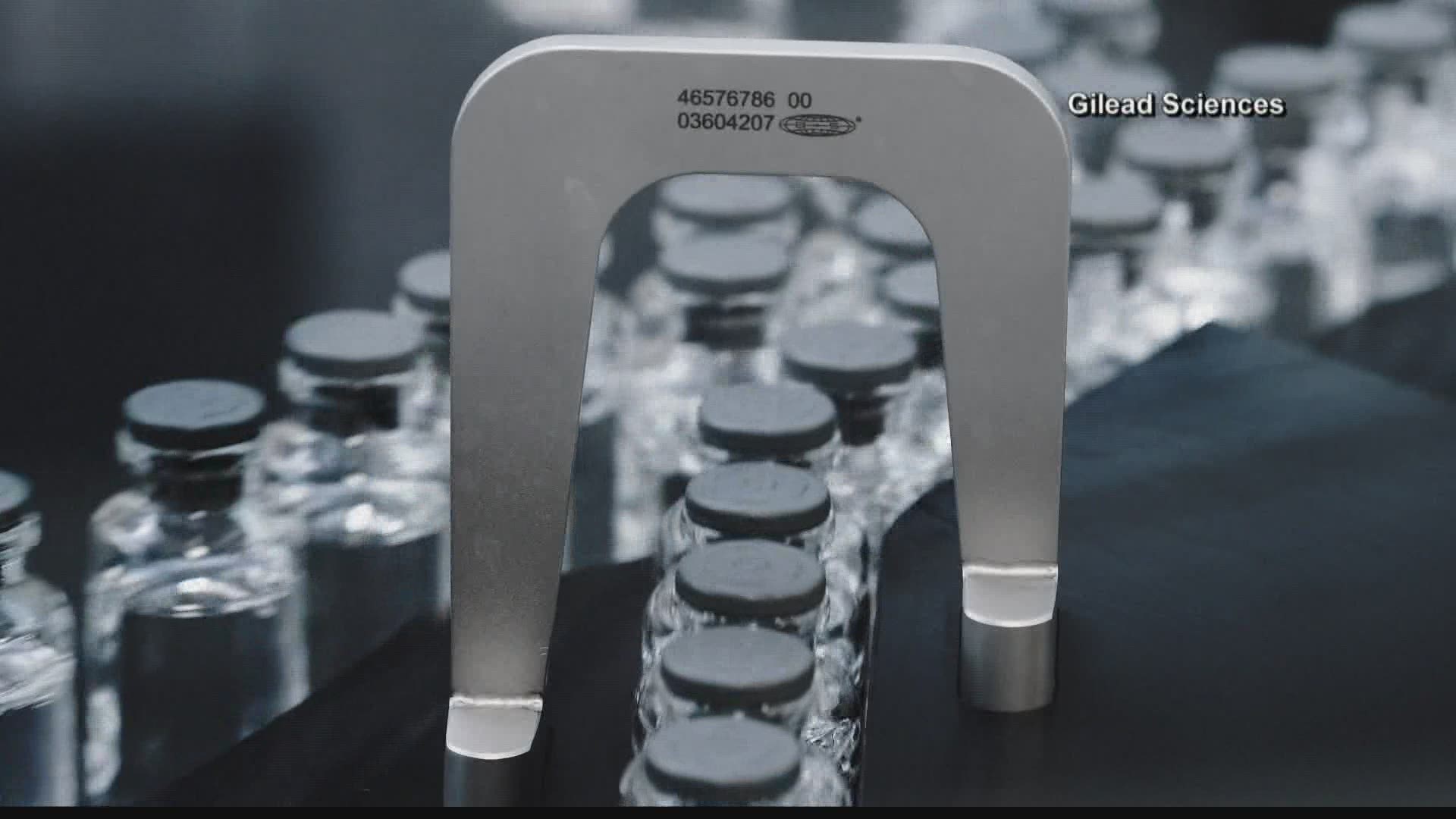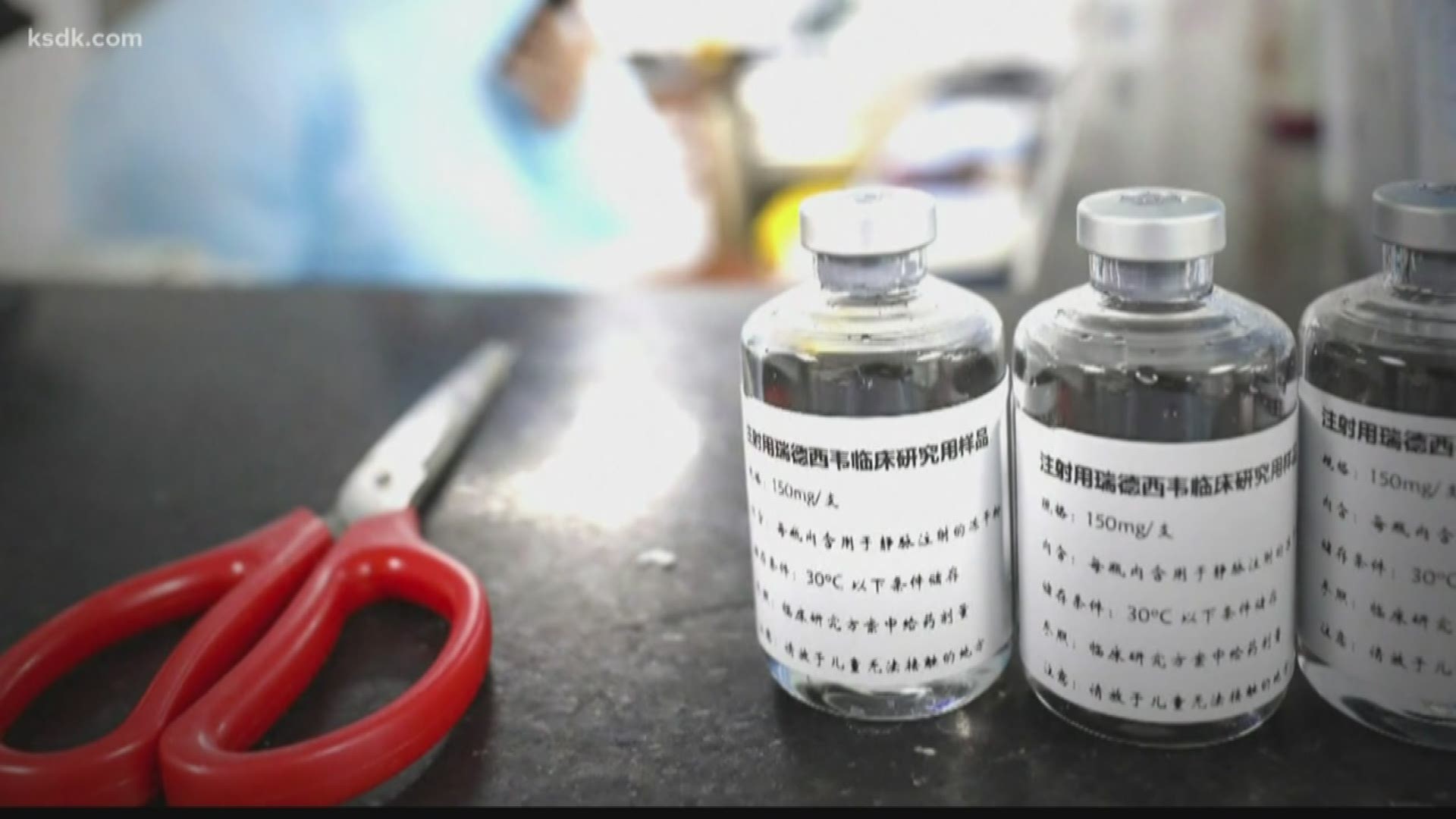ST. LOUIS — It's not a cure. But doctors say it is encouraging.
"This is the first ray of light that we've seen so far in this long and terrible outbreak," said Dr. Sarah George, M.D., associate professor of infectious diseases at Saint Louis University.
Dr. George said the experimental drug remdesivir could offer life-saving treatment for COVID-19.
Dr. George was the principal investigator of the trial for the drug at Saint Louis University’s Center for Vaccine Development — one of multiple sites in the trial around the country in which doctors tried remdesivir on some of their sickest coronavirus patients.
"We saw some people who were very, very ill, who did get better," said Dr. George who added doctors don't yet know which of their patients actually received the drug and which were given a placebo in what's known as a "double-blind" study.
The country's top infectious disease doctor announced the breakthrough at the white house Wednesday.
"The data shows that remdesivir has a clear cut significant positive effect in diminishing the time to recovery. This is really quite important," said Dr. Anthony Fauci the National Institutes of Allergies and Infectious Disease Director.
The preliminary data shows remdesivir cut the recovery time for patients in the hospital from 15 to 11 days.
The mortality rate also dropped, though not dramatically: from 11.6% For those on the placebo to 8% for those on remdesivir.
Dr. Fauci said all placebo patients in the test will now get the actual drug.
Dr. George said people have reason to be excited about this potential treatment.
"We think we can save lives with this drug," she said. "That means a lot. But we really need prevention, we really need vaccine."
More studies are still needed, but Dr. Fauci said remdesivir will now be "standard care" for anyone in the hospital for COVID-19, while the company that makes it, Gilead Sciences, tries to ramp up production.


